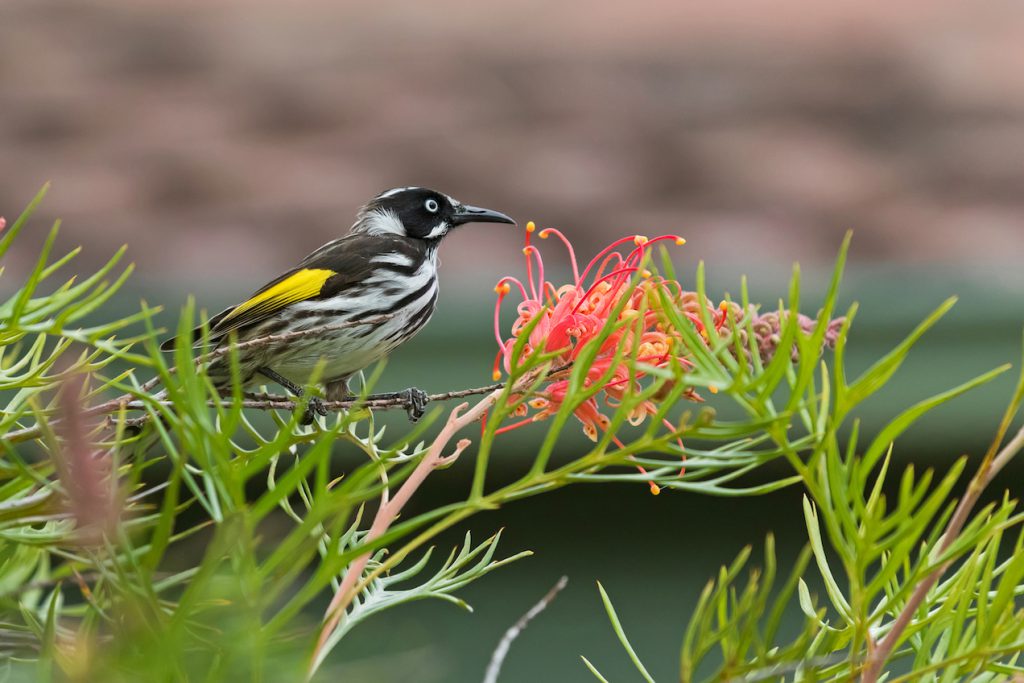No products in the cart.

[vc_row][vc_column][vc_column_text]A chemical free garden is a healthy garden for you, your family and the animals that visit. But you also want it to be free of garden pests and weeds. Chemical fertilisers and pesticides are designed to provide a quick solution for common gardening problems, but they can harm visiting animals, and there are often very simple, much cheaper chemical-free solutions at hand. If you spray chemicals or pesticides in the garden, you might kill a bug today. But you may also be affecting other animals that you didn’t even think about. A bird might eat that poisoned insect. The bird may not be visibly affected straight away, but what happens over time is called ‘bioaccumulation’. This means that as the bird eats more poisoned bugs over time, the poison builds up in its body. This may later cause it to become sick or die. Or another predator may eat that poisoned bird, and the poison will build up in its system – perpetuating the cycle. It’s best to avoid using chemicals and pesticides in your garden. There are many ways in which you can encourage natural predators to help out your garden instead. Start with the right plants Some plants are hardier than others.
A disease-resistant plant is less attractive to pests and is a good starting point for your low-maintenance garden. Your local council can provide you with a list of local native plants that are ideal for your backyard. Water, nurture and mulch them well, and your plants will be more resilient for it. Plant some native plants to provide food and shelter for your backyard buddies, such as: native grasses to provide seed for the birds Grevilleas which are great for nectar-feeding birds, like honeyeaters, lorikeets and other parrots Spiky-leaf plants, like Grevilleas which are great for small birds like finches and wrens Some Acacias and Hakeas which provide protection from predators Grevillea Formosa – the flowers of which attract Eastern Spinebills A cluster of Lilly Pilly pruned to size which is a great habitat that even a small urban backyard can support Remember, informal and dense planting leaves no room for weeds to grow.
Grouping plants by their water needs will make it easier for you to get the water supply right which makes your plants even more resilient. Have a think about your exotics. While some are attractive ornamental focal points in your garden, others can be a real problem. Asparagus Fern, a noxious weed still kept as a pot plant in many backyards, flowers and produces red berries in summer. These berries get eaten by birds which disperse the seeds to other areas. To prevent this weed from spreading into bushland where it smothers native shrubs and trees consider replacing any of these plants with equally attractive native ferns, such as the Maidenhair Fern.[/vc_column_text][us_separator type=”invisible” size=”small”][vc_row_inner][vc_column_inner width=”1/6″][vc_empty_space height=”1px”][/vc_column_inner][vc_column_inner width=”2/3″][us_single_image image=”8730″ size=”full” align=”center”][/vc_column_inner][vc_column_inner width=”1/6″][vc_empty_space height=”1px”][/vc_column_inner][/vc_row_inner][us_separator type=”invisible” size=”small”][vc_column_text]Bad Bugs As far as gardeners are concerned there are good bugs and there are bad bugs. Aphids are definitely the latter, but they won’t be a problem if you look after their natural predators. Ladybirds and their larvae gorge themselves on aphids, as do lace wings, hoverflies and their larvae. As long as you don’t use chemical sprays, these predators will be there when you need them. In the worst cases you can also buy the eggs of good bugs and place them directly on your plants – for a list of suppliers and a who is who of the bug world visit Eco Organic Garden or Bugs for Bugs. Even relatively low toxic ‘environmentally friendly’ insecticide, such as pyrethrum or garlic spray, while killing the aphids, will also kill natural predators. A bird bath in a sheltered position in your garden will attract the small, insect eating birds that also do a great job cleaning up scale and aphids. Just make sure that the bath is out of reach of your or the neighbour’s cat. Snails & Slugs To control snails in your backyard you can use snail bait or a Blue-tongue Lizard, but not both.
A Blue-tongue will eat your snails, caterpillars and other pests, but poisoned snails will also kill the Blue-tongue. To protect visiting lizards in spring and for a chance to see the baby Blue-tongues in summer, try a simple, poison free snail trap. Fill an empty can or other container with beer, wine or any yeast product mixed with water and bury it near your vegie patch with the rim 1 or 2 cm above the ground. It will attract the snails and drown them. A 5% sugar-water solution also works well for slugs. Empty the traps every day into the compost. Better Soils & Gardens Divide your vegie patch into 4 or more small, separate beds. Throughout the season rotate the crops as an effective means of disease and pest control while increasing soil fertility. Always use string-lines so rows of vegetables are straight for economic use of small areas. Rows also allow make weeding and watering easier.
The best mulch for a backyard buddy garden would be native leaf litter, which comes from native tree pruning and is available from your own trees or your council depot. Compost reduces your garden and kitchen waste and is the best organic fertiliser you can get, and best of all, it’s free. Even the smallest balcony can house a worm farm – talk to your gardening center staff for the right product for your garden.
Resources http://www.backyardbuddies.org.au/for-plants/chemical-free[/vc_column_text][/vc_column][/vc_row]
